News
NIN: Withdraw Threat To Block SIM Cards, SERAP Warns Buhari
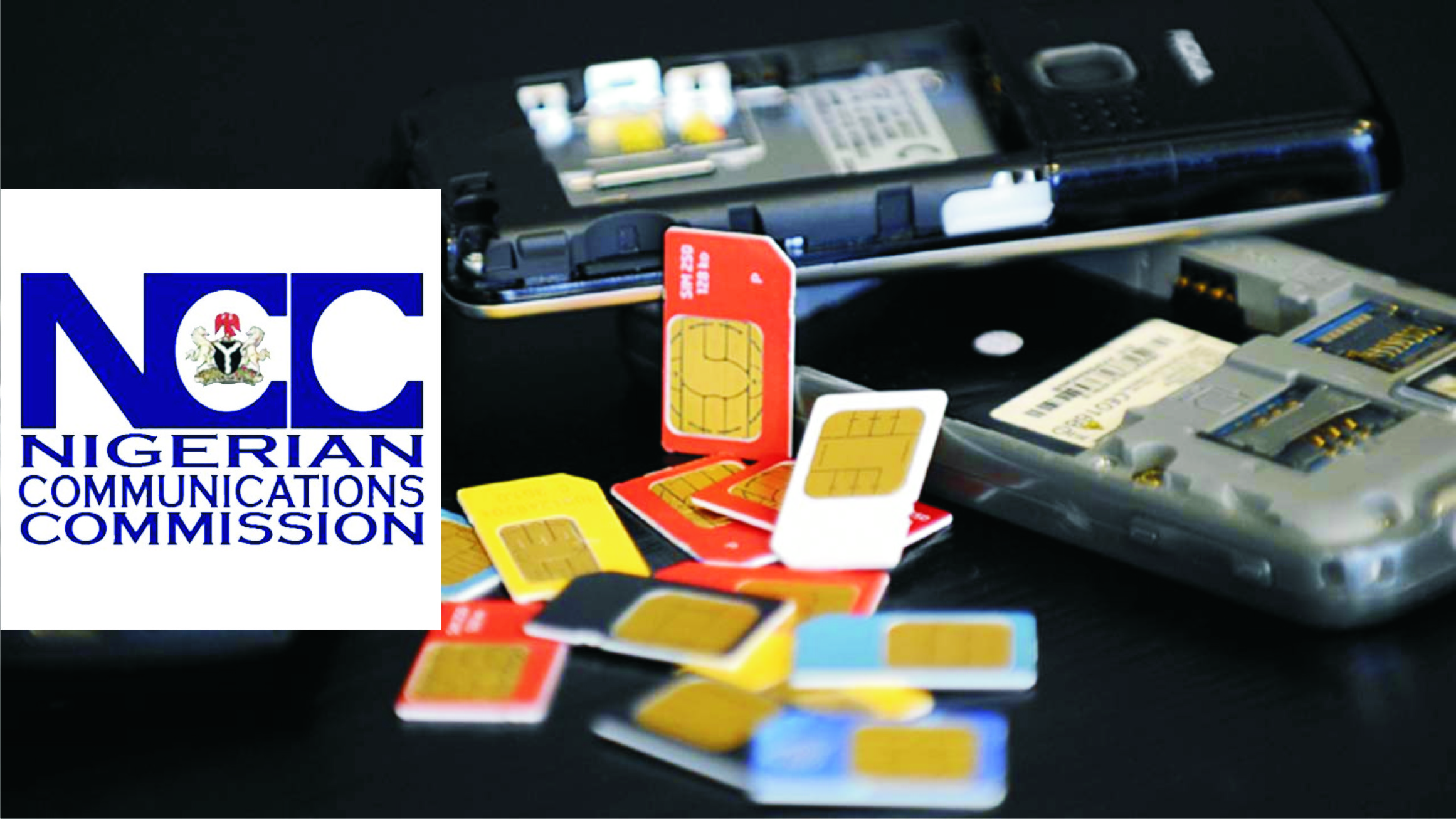
Socio-Economic Rights and Accountability Project (SERAP) has urged President Muhammadu Buhari to “instruct the Minister of Communications and Digital Economy, Dr Isa Pantami, and Director-General of the National Identity Management Commission (NIMC), Mr Aliyu Abubakar, to stop the push for registration of Nigerians for National Identity Number (NIN), and also withdraw the threat to block SIM cards, as the data being sought already exist in several platforms, including the Bank Verification Numbers (BVN), driver’s license, international passport, and voters’ card.”
The organization also urged him “to instruct Pantami and Abubakar to take concrete measures to promptly ensure that the NIMC is able to faithfully and effectively discharge its statutory functions to harmonise and integrate existing identification databases in government agencies into the National Identity Database, and to use the information to update SIM card registration.”
The Federal Government had threatened that SIM cards not linked to NIN by December 30, 2020, would be blocked, and that telecom service providers that failed to block phone numbers without NIN would have their operating licences withdrawn.
But SERAP, in a letter dated December 19, 2020, and signed by its Deputy Director, Kolawole Oluwadare said, “No government has the right to strip its own people of their basic rights under the guise of registration for national identity number. If the authorities continue down this path, the threats to citizens’ rights such as the rights to freedom of expression and access to information will inevitably increase and the NIMC will remain a paper tiger.”
SERAP said, “Instead of forcing Nigerians to register, threatening telecom service providers with sanctions, and exposing Nigerians to the risks of Covid-19, your government ought to make sure that the NIMC discharges its statutory functions to harmonise and integrate existing identification databases in government agencies, and make use of the information collected.”
According to SERAP, “The request for Nigerians to register for NIN is burdensome, unjustified and unnecessary. It would end up serving no other purpose than to threaten and violate the rights of Nigerians, and create a ‘chilling effect’ on citizens’ ability to participate in the fight against corruption in the country, and thereby seriously undermining the government’s oft-repeated commitment to transparency and accountability.”
The letter, read in part: “There is neither a pressing legal or practical need for this registration, which threatens Nigerians’ human rights, especially at a time your government is warning Nigerians about the second wave of the Covid-19 outbreak in the country.
“Blocking Nigerians from using their SIM cards would amount to a blatant violation of their rights to freedom of expression and access to information, and have a ‘chilling effect’ on the enjoyment of other human rights.
“We would be grateful if your government would indicate the measures being taken to stop the unnecessary registration of NIN, withdraw the threat to block SIM cards, and take concrete measures to promptly ensure that the NIMC is able to faithfully discharge its statutory functions to harmonize and integrate existing identification databases in government agencies into the National Identity Database, within seven days of the receipt and/or publication of this letter.
“If we have not heard from you by then as to the steps being taken in this direction, SERAP shall take all appropriate legal actions to compel your government to implement these recommendations in the interest of millions of Nigerians.
“One of the stated purposes of NIMC as elaborated in Section 5(a) of the NIMC Act is to harmonise and integrate existing identification databases in government agencies into a national identity database. If the NIMC cannot perform this important statutory duty, then it has failed to achieve an obvious part of its legislative purpose.
“This push for registration will place a substantial burden on the exercise of human rights by Nigerians. It is also patently contrary to the objectives of the Nigerian Communications Commission (NCC) as contained in Section 1(g) of the Nigerian Communications Act 2003, which is to protect the rights and interest of service providers and consumers within Nigeria.’”
“These rights presumably include the rights to freedom of expression, access to information, life and personal security. The enjoyment of these rights forms the basis for a free and democratic society. A democratic government based on the rule of law is one that is responsible to its citizenry and seeks to represent their interests.
“The push for registration for NIN is a bad initiative, and cannot find support in existing laws, the Nigerian Constitution of 1999 (as amended) and the country’s international human rights obligations.
“SERAP notes that the information on individuals currently being sought by your government already exist in several platforms, including through multiple citizen’s collection data platforms such as the Bank Verification Numbers (BVN), international passport, driver’s license, SIM card registration and voters’ card.
“This point is buttressed by Section 5(h) of the NIMC Act 2007, which provides that: ‘the Commission shall establish and maintain secured communication links with any existing relevant identity related database or agency’.
“The statutory duty to harmonize and integrate existing data for the purposes of NIN and SIM card registration should not be difficult to carry out, as the Nigeria Immigration Service, Independent National Electoral Commission (INEC), Central Bank of Nigeria (CBN), and Federal Road Safety Corps (FRSC) are already members of the Board of the NIMC by virtue of section 2(1)(b) of the NIMC Act.”
News
You Failed Nigerians, Falana Slams Power Minister
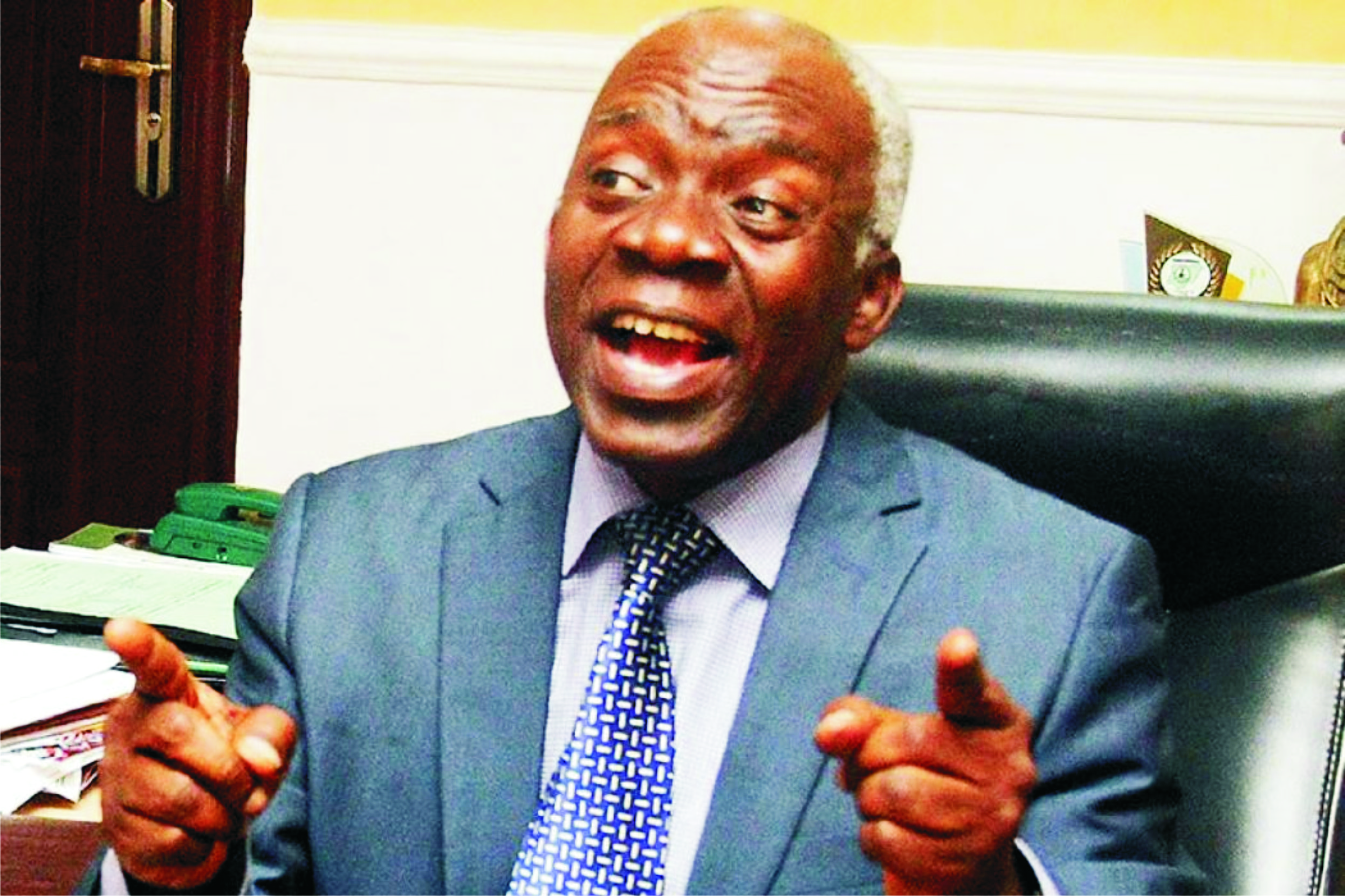
Human rights lawyer, Femi Falana, SAN, has passed a vote of ‘no confidence’ in the Federal Government, saying that the Minister of Power, Adebayo Adelabu, has failed Nigerians.
Falana was reacting to Adelabu’s appearance before the Senate to defend the increase in the electricity tariff and what Nigerians would pay on Monday.
The rights activists also claimed that the move is a policy imposed on the Nigerian government by the International Monetary Funds (IMF) and the World Bank.
Speaking on the Channels TV show on Monday night, Falana said, “The Minister of Power, Mr Adebayo Adelabu has failed to address the question of the illegality of the tariffs.
“Section 116 of the Electricity Act 2023 provides that before an increase can approved and announced, there has to be a public hearing conducted based on the request of the DISCOS to have an increase in the electricity tariffs. That was not done.
“Secondly, neither the minister nor the Nigeria Electricity Regulatory Commission has explained why the impunity that characterised the increase can be allowed.”
Falana also expressed worry over what he described as impunity on the part of the Federal Government and electricity regulatory commission.
““I have already given a notice to the commission because these guys are running Nigeria based on impunity and we can not continue like this. Whence a country claims to operate under the rule of law, all actions of the government, and all actions of individuals must comply with the provisions of relevant laws.
“Secondly, the increase was anchored on the directives of the commission that customers in Band A will have an uninterrupted electricity supply for at least 20 hours a day. That directive has been violated daily. So, on what basis can you justify the increase in the electricity tariffs”, Falana queried.
The human rights lawyer alleged that the Nigerian government is heeding an instruction given to her by the Bretton Wood institutions.
He alleged, “The Honourable Minister of Power is acting the script of the IMF and the World Bank.
“Those two agencies insisted and they continue to insist that the government of Nigeria must remove all subsidies. Fuel subsidy, electricity subsidy and what have you; all social services must be commercialised and priced beyond the reach of the majority of Nigerians.
“So, the government cannot afford to protect the interest of Nigerians where you are implementing the neoliberal policies of the Bretton Wood institutions.”
The Senior Advocate of Nigeria accused Western countries led by the United States of America of double standards.
According to him, they subsidize agriculture, energy, and fuel and offer grants and loans to indigent students while they advise the Nigerian government against doing the same for its citizens.
Following the outrage that greeted the announcement of the tariff increase, Adelabu explained that the action would not affect everyone using electricity as only Band A customers who get about 20 hours of electricity are affected by the hike.
Falana, however, insisted that neither the minister nor the National Electricity Regulatory Commission (NERC) has justified the tariff increase.
The senior lawyer said that Nigerian law gives no room for discrimination against customers by grading them in different bands.
He insisted that the government cannot ask Nigerians to pay differently for the same product even when what has been consistently served to them is darkness.
Following the outrage over the hike, Adelabu on Monday appeared at a one-day investigative hearing on the need to halt the increase in electricity tariff by eleven successor electricity distribution companies amid the biting economic situation in Nigeria.
However, Falana said that nothing will come out of the probe by the Senate.
He advised that the matter has to be taken to court so that the minister and the Attorney General of the Federation can defend the move.
News
1.4m UTME Candidates Scored Below 200 -JAMB
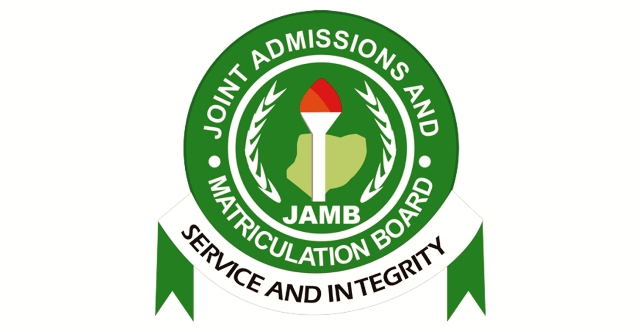
The Joint Admissions and Matriculation Board (JAMB) on Monday, released the results of the 2024 Unified Tertiary Matriculation Examination, showing that 1,402,490 candidates out of 1,842,464 failed to score 200 out of 400 marks.
The number of candidates who failed to score half of the possible marks represents 78 per cent of the candidates whose results were released by JAMB.
Giving a breakdown of the results of the 1,842,464 candidates released, the board’s Registrar, Prof. Ishaq Oloyede, noted that, “8,401 candidates scored 300 and above; 77,070 scored 250 and above; 439,974 scored 200 and above while 1,402,490 scored below 200.”
On naming the top scorers for the 2024 UTME, Oloyede said, “It is common knowledge that the Board has, at various times restated its unwillingness to publish the names of its best-performing candidates, as it considers its UTME as only a ranking examination on account of the other parameters that would constitute what would later be considered the minimum admissible score for candidates seeking admission to tertiary institutions.
“Similarly, because of the different variables adopted by respective institutions, it might be downright impossible to arrive at a single or all-encompassing set of parameters for generating a list of candidates with the highest admissible score as gaining admission remains the ultimate goal. Hence, it might be unrealistic or presumptive to say a particular candidate is the highest scorer given the fact that such a candidate may, in the final analysis, not even be admitted.
“However, owing to public demand and to avoid a repeat of the Mmesoma saga as well as provide a guide for those, who may want to award prizes to this set of high-performing candidates, the Board appeals to all concerned to always verify claims by candidates before offering such awards.”
Oloyede also noted that the results of 64,624 out of the 1,904,189, who sat the examination, were withheld by the board and would be subject to investigation.
He noted that though a total of 1,989,668 registered, a total of 80,810 candidates were absent.
“For the 2024 UTME, 1,989,668 candidates registered including those who registered at foreign centres. The Direct Entry registration is still ongoing.
“Out of a total of 1,989,668 registered candidates, 80,810 were absent. A total of 1,904,189 sat the UTME within the six days of the examination.
“The Board is today releasing the results of 1,842,464 candidates. 64,624 results are under investigation for verification, procedural investigation of candidates, Centre-based investigation and alleged examination misconduct”, he said.
Oloyede also said the Board, at the moment, conducts examination in nine foreign centres namely: Abidjan, Ivory Coast; Addis Ababa, Ethiopia; Buea, Cameroon; Cotonou, Republic of Benin; London, United Kingdom; Jeddah, Saudi Arabia; and Johannesburg, South Africa.
“The essence of this foreign component of the examination is to market our institutions to the outside world as well as ensuring that our universities reflect the universality of academic traditions, among others. The Board is, currently, fine-tuning arrangements for the conduct of the 2024 UTME in these foreign centres,” he explained.
News
Ex-CBN Director Admits Collecting $600,000 Bribe For Emefiele
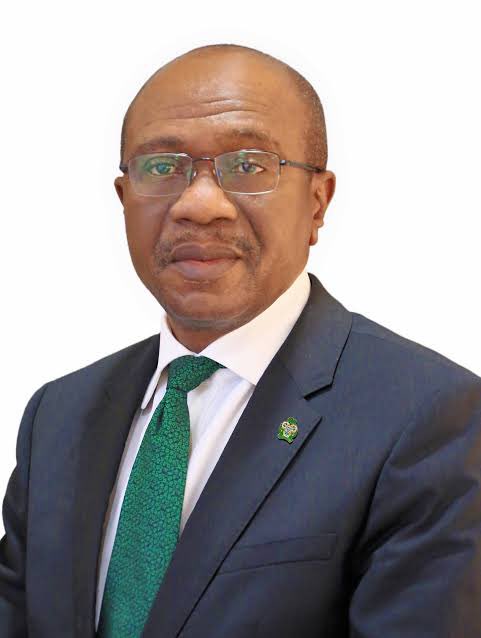
A former Director of Information Technology with the Central Bank of Nigeria, John Ayoh, has alleged that he collected on behalf of the former governor of the apex bank, Godwin Emefiele, a sum of $600,000 in two installments from contractors.
Ayoh, the second witness of the Economic and Financial Crimes Commission (EFCC), disclosed this on Monday while recounting instances where he facilitated the delivery of money to Emefiele, claiming it was for contract awards.
Under cross-examination at the Ikeja Special Offences Court in Lagos by the defence counsel, Olalekan Ojo (SAN), Ayoh admitted to facilitating the alleged bribery under pressure.
The embattled former governor of the apex bank is having many running legal battles both in Abuja and Lagos and is being tried by the EFCC at the Special Offences Court over alleged abuse of office and accepting gratification to the tune of $4.5 billion and N2.8bn.
He was arraigned on April 8, 2024, alongside his co-defendant, Henry Isioma-Omoile, on 26 counts bordering on abuse of office, accepting gratifications, corrupt demand, receiving property, and fraudulently obtaining and conferring corrupt advantage.
Emefiele’s defence, however, challenged the court’s jurisdiction over constitutional matters, urging the quashing of counts one to four and counts eight to 24 against him.
Ayoh, who was led in evidence by the EFCC prosecution counsel, Rotimi Oyedepo (SAN), said the first money he collected on Emefiele’s behalf was $400,000 which his assistant, John Adetola, came to collect at his house in Lekki, Lagos State.
He further told the court that the second bribe of $200,000 was collected at the headquarters of CBN, at the Island office.
He said the money was brought in an envelope, adding that when the delivery person, Victor, was on the bank’s premises, he contacted Emefiele, who insisted on receiving the package directly from Ayoh without involving third parties.
He said when he went to deliver the package, he saw many bank CEOs waiting to see the former apex bank governor.
When questioned if he had ever been involved in any criminal activity, he responded in the negative but admitted that he had facilitated the commission of crime unknowingly.
“I believe I did admit in my statement that I was forced to commit the crime. I don’t know the exact word I used in my statement, but I said we were all forced with tremendous pressure to bend the rules,” he said.
When asked if he opened the envelopes he collected on the two occasions and counted the money to confirm the amount, he was negative in his reply, adding that he did also write in his statement that the money was given to influence the award of contracts.
On whether the EFCC arrested him, the witness said he was invited on February 20, 2024, and returned home after he was granted bail.
Earlier, Emefiele asked the court to quash counts one to four and counts eight to 24 against him, as the court lacks the jurisdiction to try him.
Speaking through his counsel, Ojo, he said counts one to four were constitutional matters, which the court lacked the jurisdiction to determine.
In his argument, citing Sections 374 of the Administration of Criminal Justice Act and 386(2), the defence counsel told Justice Rahman Oshodi that Emefiele ought not to be arraigned before the court on constitutional grounds.
He, therefore, urged the court to resolve the objection on whether the court had the jurisdiction to try the case or not.
The second defendant’s counsel, Kazeem Gbadamosi (SAN), also relied on the submissions of Ojo.
The EFCC counsel, Oyedepo, however, objected, as he asked the court to disregard the decision of the Court of Appeal relied upon by Ojo, saying that the Court of Appeal could not set aside the decision of the Supreme Court on any matter.
Ruling on the submissions of the counsel, Justice Oshodi said he would give his decision on jurisdiction when he delivered judgment as he adjourned till May 3.
He also directed the EFCC to serve the defence proof of evidence on witness number six and his extrajudicial statement.
-
Business5 days ago
Boat Mishap: CILT Advocates Safety Culture On Waterways …Claims 300 Nigerians In 2023
-
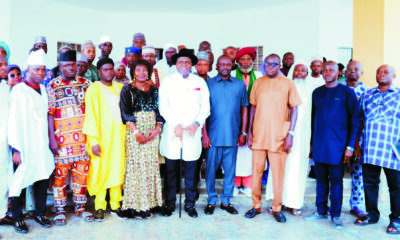
 Niger Delta5 days ago
Niger Delta5 days agoNCDMB Boss Lauds SNEPCO, Others Over Project Execution
-
News14 hours ago
NANS Threatens Nationwide Protest Over Fuel Scarcity
-

 Business5 days ago
Business5 days agoAFEX Launches Impact Report On Food Security
-
Oil & Energy5 days ago
FG Explains Sulphur Content Review In Diesel Production
-

 News14 hours ago
News14 hours agoEx-CBN Director Admits Collecting $600,000 Bribe For Emefiele
-
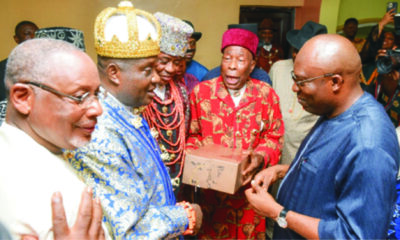
 News5 days ago
News5 days agoNGF Advocates Safer Transportation Of Petroleum Products
-

 Maritime5 days ago
Maritime5 days agoDrydock To Complete LAGFERRY Maintenance, Aug -Commissioner

